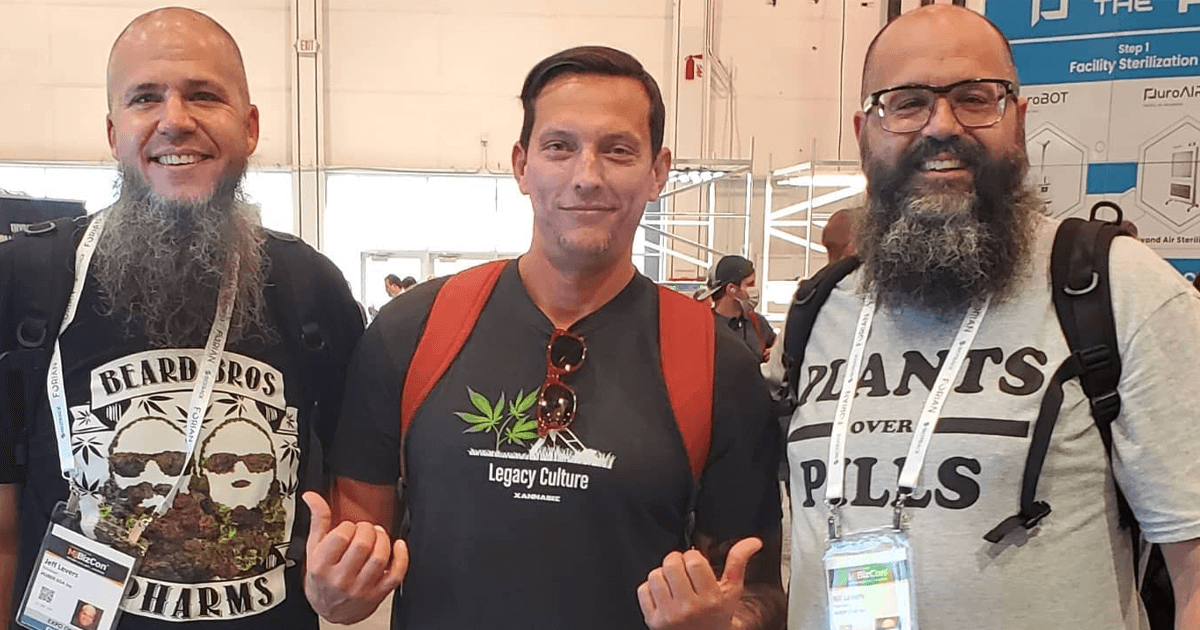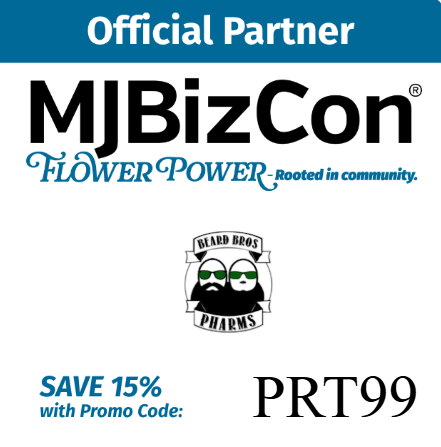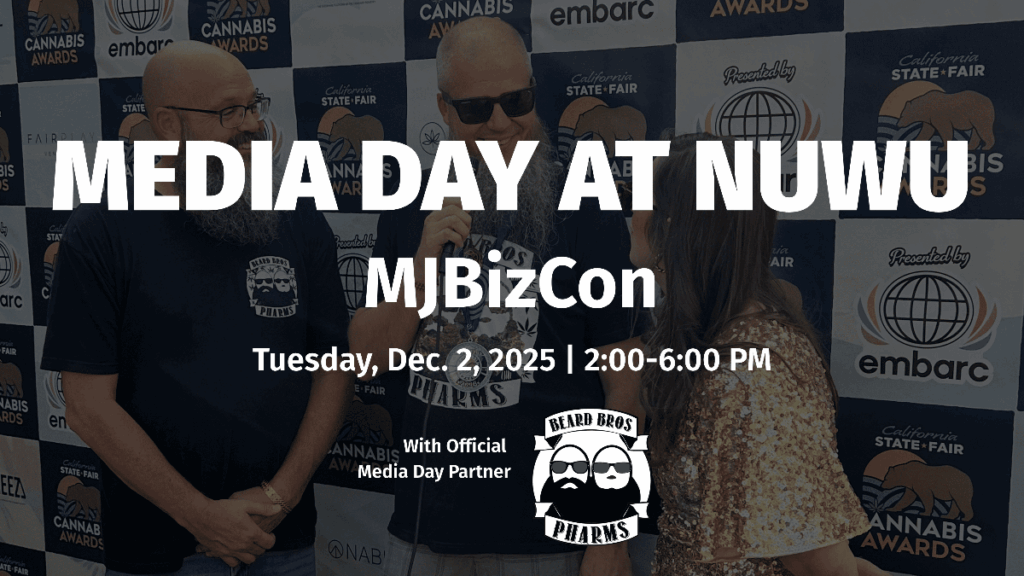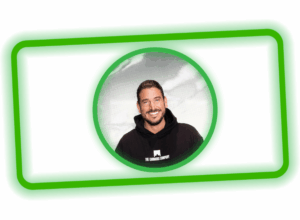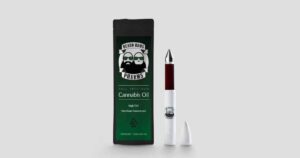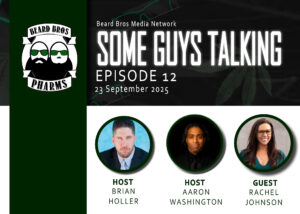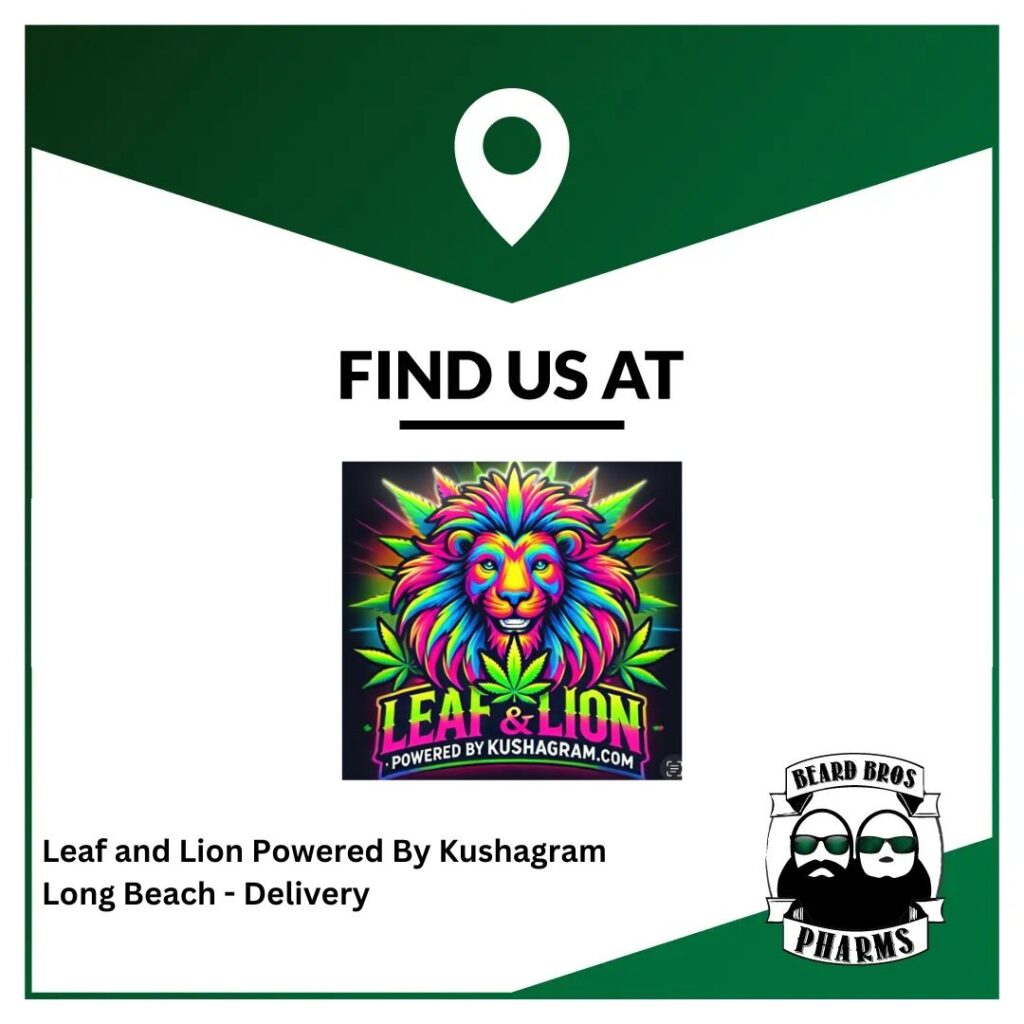Legacy Professionals Series, Q&A: w/ Dustin Hoxworth (DH) and Alex Popoff (AP)
This is a Beard Bros Pharms exclusive interview series about Legacy Cannabis Operators.
Get to know “legacy” operators and their points of view, some anonymous, some public, regarding their experiences in the traditional, or legacy cannabis markets- and how it relates to the current markets.
This edition features Dustin Hoxworth (“DH”) of Atlanta, Georgia.
Dustin shares his thoughts on corporate cannabis and stories about the highs and lows of the traditional market. He and his friend were robbed at gunpoint and witnessed many of the harms of the war on drugs first and secondhand. Dustin’s father and much of his family were veterans who found relief from PTSD through using cannabis.
His father served in Vietnam and was prescribed a cocktail of prescription drugs when he got home which led to addiction. Dustin’s father passed away before being able to see medical cannabis legalization in his state. However, like many of us, (thanks to the legacy market) his father still found access to cannabis, without a legal program.
Thank you, Dustin, for your help in creating this series, its’ questions, and your time.
This series is intended to show what it is like for legacy professionals who try to enter the legal market.
RELATED:
A deeper dive into the culture and breeding of cannabis and its history:
‘Breeding the Culture’ Series, by SunGrownMidz
This interview has been edited for length and clarity.
AP: What does Legacy Cannabis and Legacy Culture mean to you?
DH: Growers, distributors, and advocates of Cannabis long before it was legal. Basically, started with our farmers to hippie culture, and everyone that’s helped to bring about legalization, including those that supported the overall movement even by simply buying and using, as those are also types of advocacy.
The culture has a lot to do with respect. Respect for the plant, farmers, distributors, planet, environmental protections, human rights, freedom, and standing up to the toxic corporate capitalism and crony political nonsense that arrested, killed, and destroyed thousands if not millions of lives in the name of a “drug war.” And let’s also not forget that our drug war has led to other countries’ stance and policy on Cannabis as well. So, the number of lives negatively affected goes way beyond our borders.

AP: What is your personal connection to the Legacy Cannabis Culture?
DH: I was basically born into it. Ever since I can remember I was around the plant. My parents smoked, my aunts and uncles smoked, my brother smoked, it was just always around and completely normalized. My father was “the guy that lived down by the Mississippi River in his van who sold weed.” Much of my family is military and several family members like my uncles came home from Vietnam with severe PTSD.
They’d jump and dive into bushes when planes flew overhead, without Cannabis to treat those PTSD issues my family wouldn’t have survived this long. I also remember seeing plants as a kid when I lived with an Indigenous stepfather for 9 years, and that affected my view of the plant tremendously.
As far as my personal use, that started around 1992. I became a daily consumer in 1995 as I found it helped with my depression, anxiety, and self-esteem issues stemming from childhood trauma. Not to mention that I simply enjoyed being high while doing life.
I personally got into distribution in 1995 as well.
I began running pounds from Atlanta, GA to Georgia Southern University to pay for my school.
Things were scary at times from dealing with a lot of nervous and private legacy operators, and my partner and I were robbed in 1998 (that was just something you had to deal with). He was duct taped on Halloween night at gunpoint while several others took everything that wasn’t bolted to the floor. And this happened while living right next door to a cop.
Regardless of all the crazy times, I was able to graduate college in 1999 with a small amount of debt because Cannabis offset some of the costs. During college I played volleyball and was one of the top hitters in the nation.
Cannabis helped me to recover faster from those weekend tournaments and 2hr long workouts in the gym. So, my personal connection encompasses family, friends, school, sports, and work, meaning it’s safe to say my entire life has revolved around the plant in one way or another.
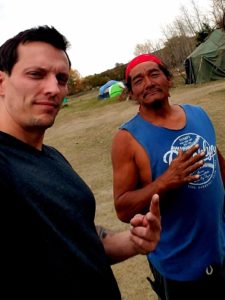
AP: How has Cannabis affected your personal health, career, social life, political outlook or other facets of your life?
DH: My Cannabis use at first was strictly based on enjoyment, but I soon found it helped in a lot of different ways. It helped me deal with depression, anxiety, and other issues I carried around from having a crazy childhood. When it comes to my career, that has definitely been a huge challenge. Having to pass drug screens and pretend to be someone else on a daily basis in a corporate setting is extremely stressful, and after 20 years I had to stop pretending, to save myself.
Socially Cannabis has always been a way to meet new people, connect, and share experiences. I found my circle through exploring life with likeminded people while consuming, sort of contributing to the overall culture of Cannabis that we know today. Politically my participation at Standing Rock comes to mind, and it’s probably a good representation of the type of views I have.
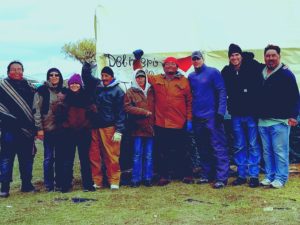
AP: What is your goal in the Cannabis industry? What do you hope to accomplish?
DH: The goal is to combine my knowledge and experience from the corporate world with my passion and experience with the plant. Basically, bringing my creative, program management, leadership, data, and CX background to any brand or Cannabis focused organization; take the good from corporate and combine it with my love and respect for the plant.
AP: So, what you are saying is you can essentially identify the pros and cons from both the corporate world and legacy cannabis, and work to bridge the gap between the two?
DH: Bingo.
AP: What led you to get into the legal cannabis industry?
DH: I was initially nervous about entering into the legal Cannabis industry, because if it didn’t work I could be ostracized from the normal corporate world and be out of job for a very long time, if not forever, or so I told myself. I think the pandemic shifted the way I look at my career. I got tired of hiding my use and advocacy in corporate settings. It got unbearably tiring trying to fit into stuffy corporate offices around people that weren’t like me or didn’t share the same values.
Then something on LinkedIn caught my attention; the Cannabis community was an actual thing, and I wasn’t a part of it!? So, one day I just woke up and started updating my profile to reflect more of my authentic self. I began embracing my knowledge from growing up around the plant, selling and using it. I began to see how my passion for the plant was valuable, especially when mixed with my corporate experience. From there, I never stopped.
Those first few interactions I had with other Cannabis professionals made all the difference and gave me the confidence to make new connections, build a network, and pursue my Cannabis career. Now I seem to have multiple calls a day, sometimes just to talk and find out about each other’s backgrounds, or to discuss possible opportunities. I’ve also had a few interviews with companies that I would love to be a part of but haven’t landed anything permanent just yet. Hopefully that’ll change soon.
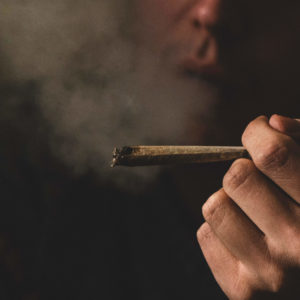
AP: Regarding getting a job in the legal industry: What has been the response to your strategy so far?
DH: The response so far has been overwhelmingly positive. So many people have reached out, accepted connection requests, responded to posts or comments, and although not everyone has been willing to talk to me or respond to direct messages (I won’t name names or companies, but they know who they are), most have, and it’s been extremely helpful in creating a positive experience and building confidence.
Several connections have directly recommended me for positions and actually sent my resume to hiring managers. There are a few people I need to make sure I thank for all their initial conversations and advice; Max Ireland, Katie Graika, Brett Puffenbarger, Peter Kasper, Hector Santa Cruz, Dylan Powers, Derek Coutu, Gregory Frye, and Varun Sharma…I’m sure I’m leaving several names out, but those are the ones that I can recall helping me to have a positive experience as I entered the industry.
AP: What has been the biggest surprise about the Legal Cannabis Industry so far?
DH: I think the biggest surprise so far would be how legalization has been allowed to be driven by people who have had nothing to do with the plant prior. It’s an industry that’s currently being built just like the rest of corporate America; very wealthy people unfairly influencing politicians making the industry a cash grab in a lot of ways with extra taxes, and a ton of hoops to jump through that simply make no sense.
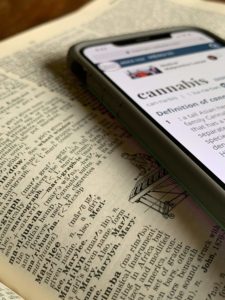
AP: Why do you think this type of spotlight with Beard Bros Pharms could help you and other Legacy Cannabis Professionals?
DH: Beard Bros Pharms is one of the most respected organizations in the industry. They come from a legacy background, respect the plant, report on important issues within the industry, and in general they seem like pretty rad fucking dudes. That means they have a lot of eyes and ears focused on them, so getting exposure like this is probably one of the best ways to be introduced to new connections within the industry, and possibly create a few career opportunities.
So from the bottom of my heart, thank you. Thank you for connecting with me, talking to me, getting on Zoom calls, discussing the plant, and getting to know me and sharing your story as well. I could sit and listen to Cannabis industry folks talk all day long about their backgrounds and never get bored. Everyone has a unique and interesting story, and that’s another really cool thing about the industry that no other industry shares.
AP: Thank you for joining us for this feature on legacy operators. Dustin’s story highlights many of the issues legacy operators faced and still face today. Fortunately, it is not all bad. Dustin also highlighted something we can all learn from, and that is the power of networking, finding communities, persevering, and going after what you believe in.
Neither Corporate cannabis nor the legacy market is perfect.
But, we can learn from one another, take the good from each industry, and work on fixing the bad. It doesn’t need to be only one way.
You can reach Dustin on Instagram @doallthethingys and on LinkedIn.
Support a local farmer, legacy operator, small business owner, or whatever terminology you prefer.
This is Part 1 of a multipart series on legacy operators.



